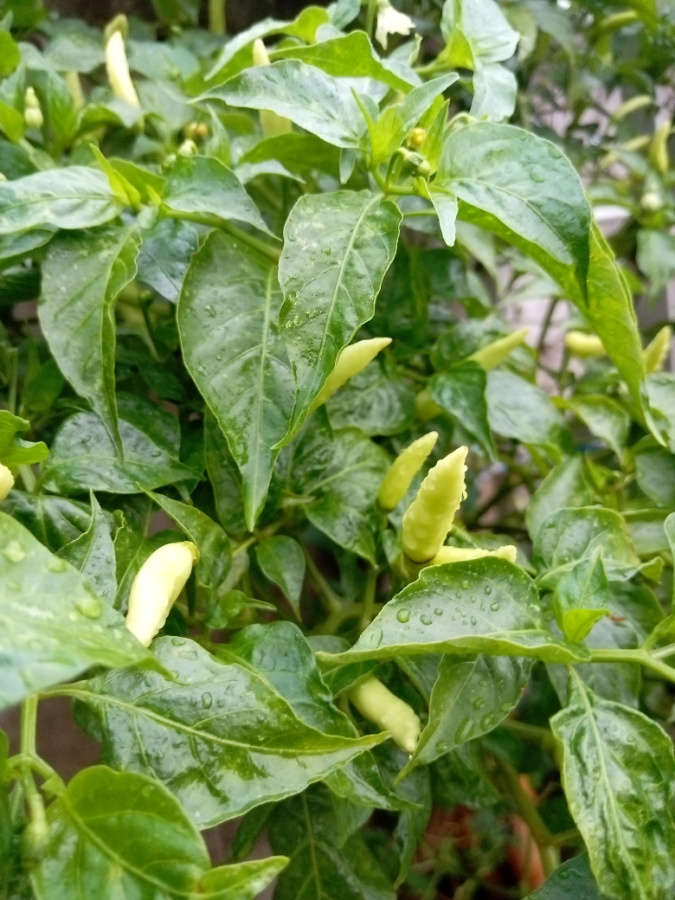Organic Vs. Synthetic Fertilizers: Which Is Best for Supporting Healthy And Balanced Pepper Plants?
In the world of supporting healthy pepper plants, the selection between organic and synthetic plant foods stands as a pivotal choice with far-ranging effects. While both choices objective to offer necessary nutrients to support plant development, the subtleties of their influence on the dirt, plant health and wellness, and the setting spark a debate that echoes throughout the gardening community. Understanding the distinctive benefits and prospective pitfalls of each plant food type is vital for pepper cultivators looking for to enhance their yields while keeping an eco-conscious and lasting technique.
Benefits of Organic Fertilizers
Organic plant foods use a sustainable and environmentally-friendly strategy to nourishing pepper plants, giving necessary nutrients without making use of synthetic chemicals. These all-natural fertilizers are originated from natural sources such as compost, manure, bone meal, and seaweed, advertising dirt health and wellness and biodiversity. Unlike artificial fertilizers, natural choices launch nutrients gradually, making certain a stable and well balanced supply for pepper plants to thrive.
One substantial benefit of natural fertilizers is their capacity to enhance dirt framework and water retention. By improving dirt health and wellness, natural fertilizers advertise beneficial microbial activity, which aids in nutrient uptake by pepper plants. Additionally, organic plant foods decrease the danger of chemical run-off, shielding water sources from pollution and securing the atmosphere.
Moreover, organic plant foods add to lasting soil fertility by advertising the development of beneficial dirt microorganisms. These organisms aid damage down organic issue, launching nutrients in a form that is conveniently accessible to pepper plants. best fertilizers for peppers. By cultivating a healthy and balanced soil ecological community, organic fertilizers sustain sustainable pepper cultivation techniques that profit both plants and the atmosphere
Disadvantages of Synthetic Plant Foods
Artificial plant foods, in comparison to their natural equivalents, position various drawbacks when utilized to nourish pepper plants, influencing both plant health and ecological sustainability. One major disadvantage of synthetic plant foods is their propensity to leach nutrients from the dirt rapidly. This rapid leaching can cause vitamins and mineral imbalances in the soil, causing plants to struggle with deficiencies or poisonings. In addition, synthetic plant foods can hurt beneficial dirt organisms, such as earthworms and helpful germs, interrupting the dirt ecological community's equilibrium.
Furthermore, the overuse of artificial fertilizers can add to water air pollution. Excess plant foods not soaked up by plants can get rid of into water bodies, bring about eutrophication, where algae blooms diminish oxygen degrees in the water, harming marine life. Artificial fertilizers are generally obtained from non-renewable resources, such as fossil fuels, adding to carbon exhausts and environmental destruction throughout their production.
Nutrient Absorption Comparison
Efficient nutrient absorption plays a critical my company role in the overall health and development of pepper plants. When contrasting organic and synthetic site link fertilizers in terms of nutrient absorption, natural fertilizers have the advantage of providing an extra well balanced and slow-release resource of nutrients (best fertilizers for peppers). Organic fertilizers have a selection of macro and micronutrients that are not only helpful for the plants but likewise promote healthy dirt microbial activity, which aids in nutrient uptake. On the various other hand, synthetic fertilizers frequently provide a quick release of nutrients, which can bring about seeping and drainage, resulting in lower nutrient absorption prices by the plants.
Furthermore, organic plant foods boost dirt framework and water retention ability, permitting pepper plants to gain access to nutrients much more efficiently. This better dirt top quality assists in root development, making it possible for much better nutrient absorption. Artificial plant foods, although at first improving plant growth because of their high nutrient concentrations, may hinder long-lasting nutrient absorption by degrading dirt health and wellness in time.
Ecological Influence Factors To Consider

On the other hand, synthetic plant foods, although typically more concentrated and right away offered to plants, can have harmful effects on the setting otherwise used properly (best fertilizers for peppers). Their production calls for high energy inputs, leading to greenhouse gas emissions and adding to climate change. In addition, the runoff of excess artificial fertilizers can pollute water resources, look these up bring about eutrophication and damaging water communities.
Finest Fertilizer Practices for Peppers
To achieve this, it is essential to follow best fertilizer practices customized to the certain demands of pepper plants. One crucial technique is to perform a soil test before applying any kind of fertilizers.
One more vital technique is to feed pepper plants at the right time. Normally, peppers gain from getting plant food at planting and afterwards once again when they start to blossom. Over-fertilizing can bring about nutrient inequalities and hurt the plants, so it is important to comply with suggested application prices.
Additionally, selecting a well balanced plant food with an NPK proportion that suits pepper plants' requirements is fundamental. Ultimately, integrating natural and synthetic fertilizers judiciously can aid nurture healthy pepper plants while minimizing ecological influence.
Conclusion

Organic fertilizers supply an environmentally-friendly and sustainable technique to beneficial pepper plants, giving crucial nutrients without the use of artificial chemicals. Unlike artificial fertilizers, organic alternatives release nutrients slowly, ensuring a well balanced and constant supply for pepper plants to grow.
Synthetic fertilizers, in comparison to their organic equivalents, position numerous disadvantages when utilized to nourish pepper plants, influencing both plant health and wellness and ecological sustainability. When comparing organic and synthetic fertilizers in terms of nutrient absorption, natural fertilizers have the benefit of supplying a much more well balanced and slow-release resource of nutrients.Furthermore, natural plant foods boost soil framework and water retention ability, allowing pepper plants to accessibility nutrients a lot more successfully.